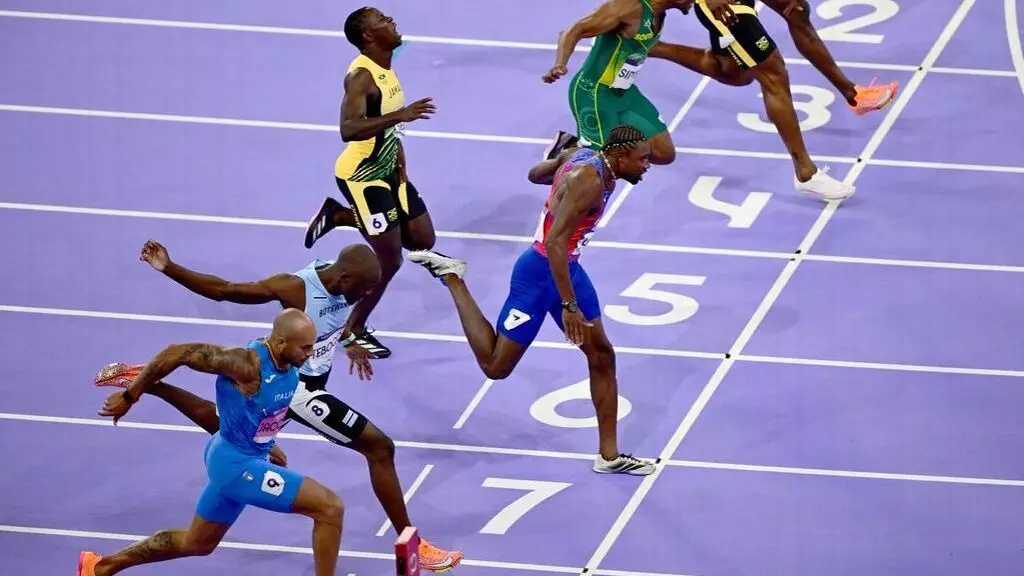Noah Lyles has been adamant in his claim to the title of the “world’s fastest man” since last August. His conviction was solidified on Sunday night at the Stade de France, where he clinched his first Olympic gold medal in the 100-meter final. Lyles clocked a personal-best time of 9.784 seconds, narrowly edging out a highly competitive field of elite sprinters. Notably, he defeated Jamaica’s Kishane Thompson, who held the fastest time globally this year, by a mere 0.005 seconds. Lyles expressed his surprise at the outcome, admitting that he initially believed Thompson had secured the win.
The culmination of the 100-meter final delivered one of the closest finishes in history, reminiscent of the Moscow event in 1980. The last time a race was decided by such a slim margin was when Allan Wells of Great Britain narrowly triumphed over Silvio Leonard in an era when timing precision did not extend to thousandths of a second. Lyles shared a fascinating detail revealed to him by his biomechanist Ralph Mann, who accurately predicted the razor-thin difference between first and second place in the race.
Noah Lyles’ victory also marked a significant milestone for American sprinting, as he became the first U.S. athlete to claim the renowned 100-meter race since Justin Gatlin’s win in 2004. Lyles’ triumph over a formidable lineup that included the defending Olympic gold medalist Marcell Jacobs and his American teammates Kenny Bednarek and Fred Kerley solidified his status as a sprinting sensation.
Despite narrowly missing out on the gold, Kishane Thompson displayed resilience and gratitude in the face of defeat. Thompson, who entered the final with high expectations following his impressive 9.77-second performance at the Jamaican trials, acknowledged his disappointment while maintaining a positive outlook on his future endeavors. The race also underscored the unpredictable nature of sprinting events, where split-second decisions and performances can determine the outcome.
The riveting showdown between Lyles and Thompson highlighted the psychological aspect of sprinting, as Thompson expressed regrets about his pacing strategy during the final sprint. The mental fortitude and strategic acumen required to excel in such high-stakes races were evident throughout the competition, with athletes constantly recalibrating their approaches to maximize their speed and performance.
Noah Lyles’ path to victory was marked by perseverance, determination, and a relentless pursuit of excellence. His journey, which began with a bronze medal at the Tokyo Games three years ago, culminated in a resounding gold medal triumph at the Olympics. Lyles’ strategic evolution and growth as a sprinter were evident in his ability to overcome setbacks, learn from defeats, and consistently push the boundaries of his athletic prowess.
Noah Lyles’ historic win in the 100-meter final not only solidified his claim as the “world’s fastest man” but also underscored the unpredictability and drama inherent in elite sprinting events. His victory serves as a testament to the power of perseverance, strategic thinking, and mental fortitude in overcoming formidable opponents and securing Olympic glory. Lyles’ journey from a promising young sprinter to an Olympic gold medalist exemplifies the transformative power of dedication, resilience, and unwavering belief in one’s abilities.

Leave a Reply